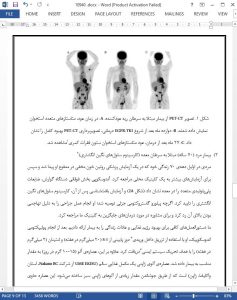Abstract
Current standard therapies for cancer, including surgery, anti-cancer drugs, and radiotherapy, are thought to contribute to the improvement in the survival rates of cancer patients. However, such standard therapies have 3 major problems: in advanced cancers, it is unlikely that standard cancer treatments will cure the disease; adverse side effects that accompany standard cancer treatments put many patients in distress; and a large amount of medical expenditure is required for new and expensive anti-cancer drugs. These problems may be viewed as a result of establishing treatments without any consideration regarding the root cause of the cancer. Otto Warburg suggested that particular changes in the energy metabolism of cells, which are associated with a shortage of oxygen, are the root cause of cancer. Cancer cells have unique metabolic characteristics, and thus we believe that it is important to treat cancer as a metabolic disease. More specifically, not only is it important to suppress cancer cell metabolism, but it is also important to improve the chronic inflammation that is associated with the development and progression of cancer, and to support the functions of immune cells. This type of view of cancer treatment coincides with the principles of Chinese medicine, which has a history of 4000 years, such as “fuzheng quxie” and “zhibing qiuben”, which can assist in the establishment of cancer treatments for patients. In this article, we discuss cancer treatments from the view of cancer as a metabolic disease and their association with Chinese medicine, and introduce some clinical cases along with a review of the literature.
Introduction
In recent years, there has been considerable progress in cancer treatment, with the development of many anti-cancer drugs, which are mainly molecular-targeting treatments. These new treatments have improved the survival rates of cancer patients; however, there are a number of problems with these new types of cancer treatments.
Conclusions
Here we have provided an overview of the treatment of cancer as a metabolic disease, introducing some examples of actual clinical cases. The idea of suppressing cancer metabolism and inflammation, which promote cancer, and enhancing immune functions coincide with the principles of Chinese medicine, such as Fuzheng Quxie and Zhibing Qiuben. These approaches to cancer treatment may result in high treatment efficacy with minimum side effects, and have the possibility of reducing medical expenses. Further investigations should therefore be performed in the future.











